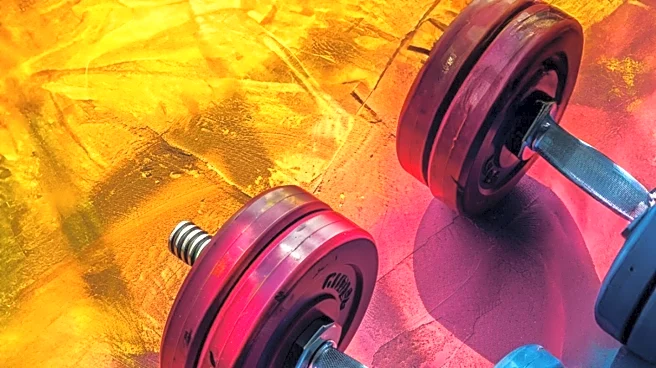What's Happening?
Recent research suggests that resistance training may enhance the gut microbiome, with individuals showing significant muscle power gains also experiencing improved bacterial balance. The study, conducted by Sven Nahnsen and colleagues at the University of Tübingen, involved 150 sedentary adults undergoing an eight-week resistance training program. Participants used 'smart' strength machines that adjusted weights and recorded progress. Stool samples were analyzed to identify changes in gut microbes, revealing that high performers had increased levels of beneficial bacteria like Faecalibacterium and Roseburia hominis, which are associated with better health outcomes.
Why It's Important?
The findings highlight the potential of resistance training to positively affect gut health, suggesting it could be integrated into health promotion strategies. Improved gut microbiome composition is linked to enhanced immune function and reduced inflammation, offering broader health benefits. This research could influence public health recommendations, encouraging the inclusion of resistance training in exercise regimens to optimize gut health. It also opens avenues for further studies on the relationship between physical activity and microbiome changes, potentially leading to new approaches in sports performance and health enhancement.
What's Next?
Future research may focus on understanding the mechanisms behind the microbiome changes observed in high performers, exploring how these shifts contribute to muscle strength gains. Studies could investigate the role of diet and lifestyle changes in conjunction with exercise, aiming to develop comprehensive strategies for improving gut health through physical activity. The potential for resistance training to enhance microbiome health may lead to new fitness programs and interventions targeting gut health, benefiting both athletes and the general population.










